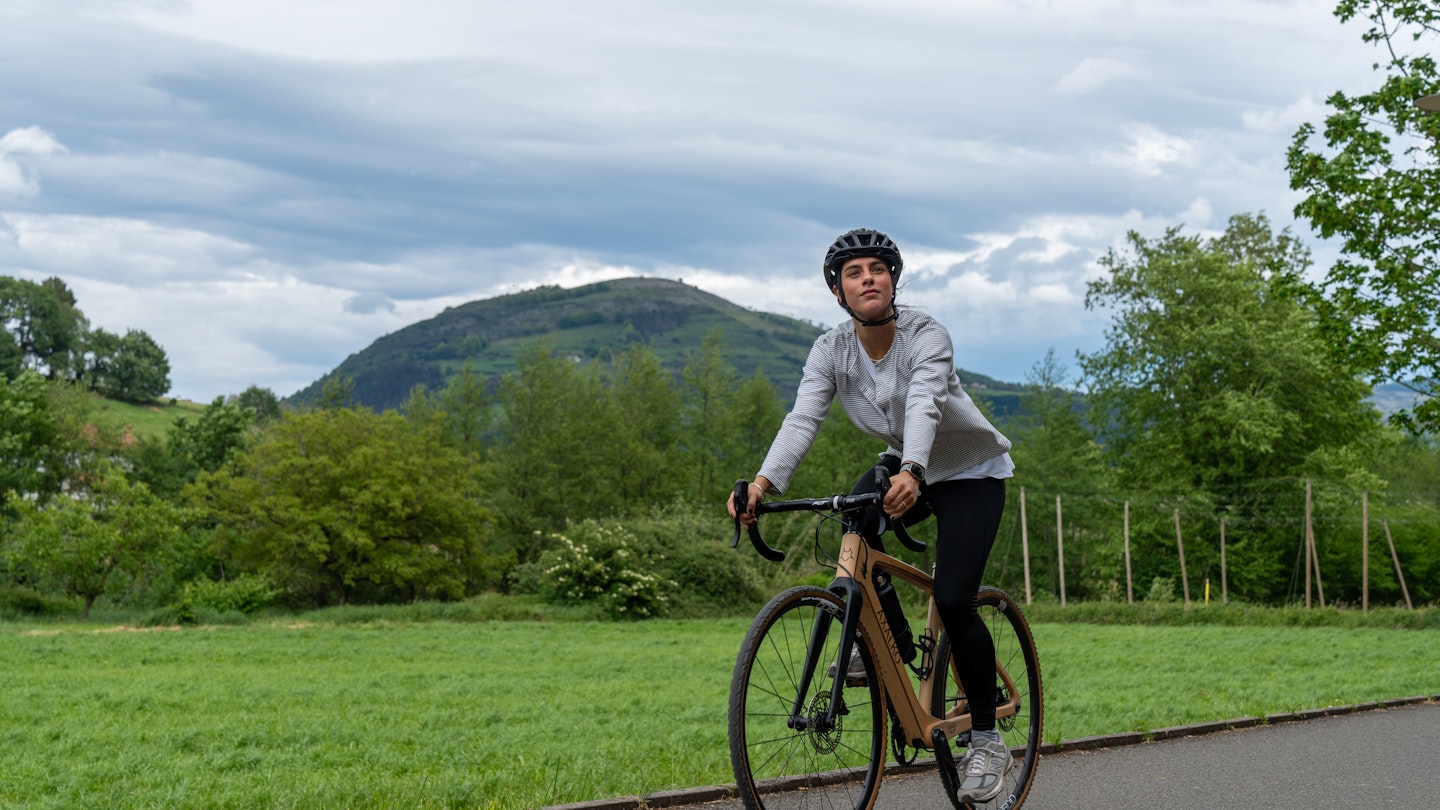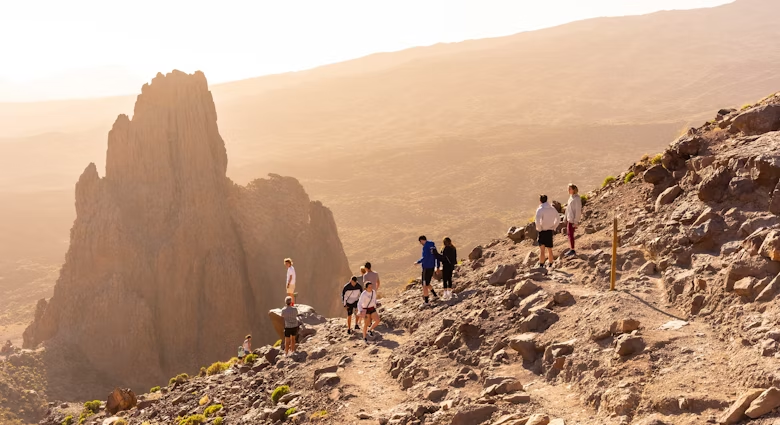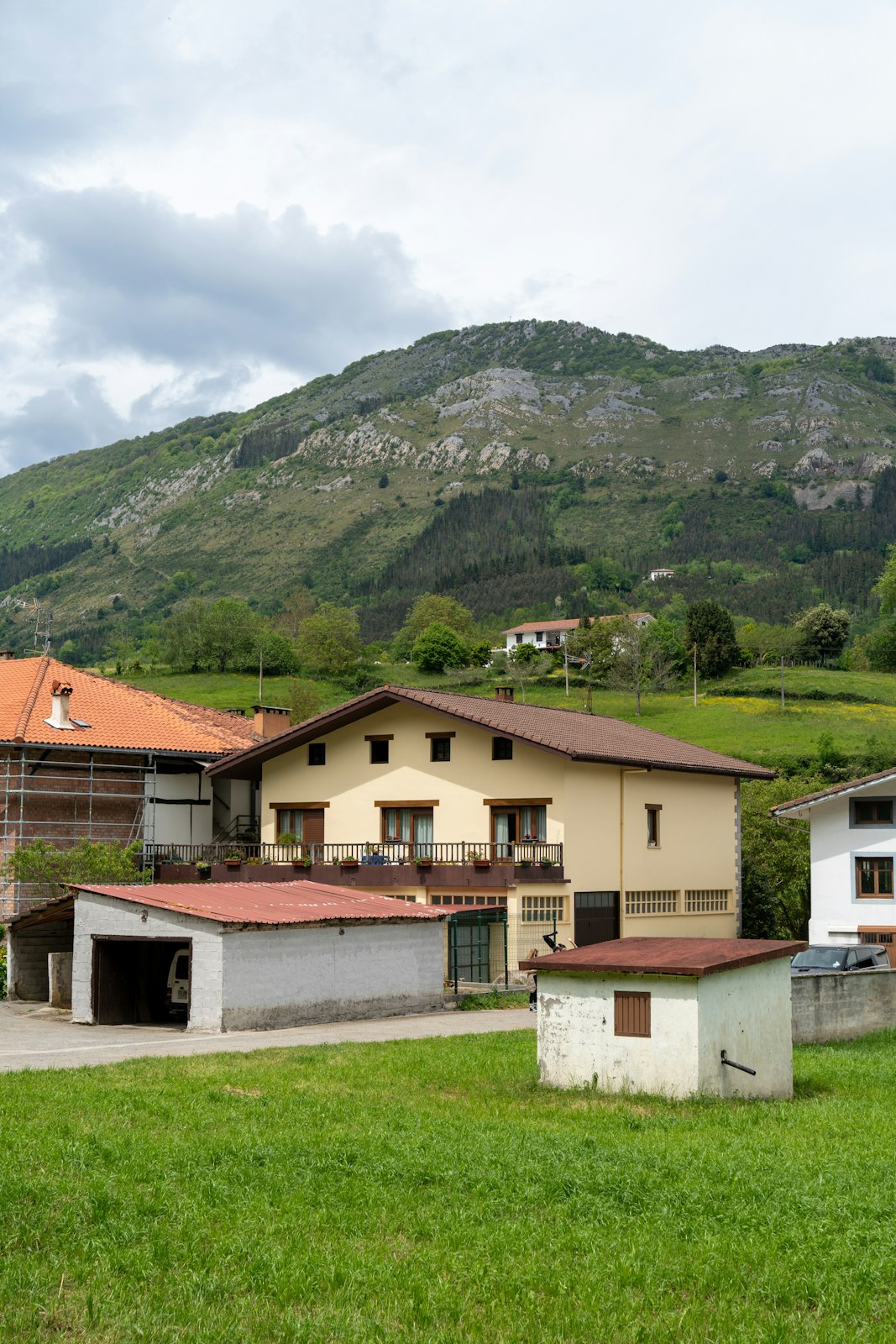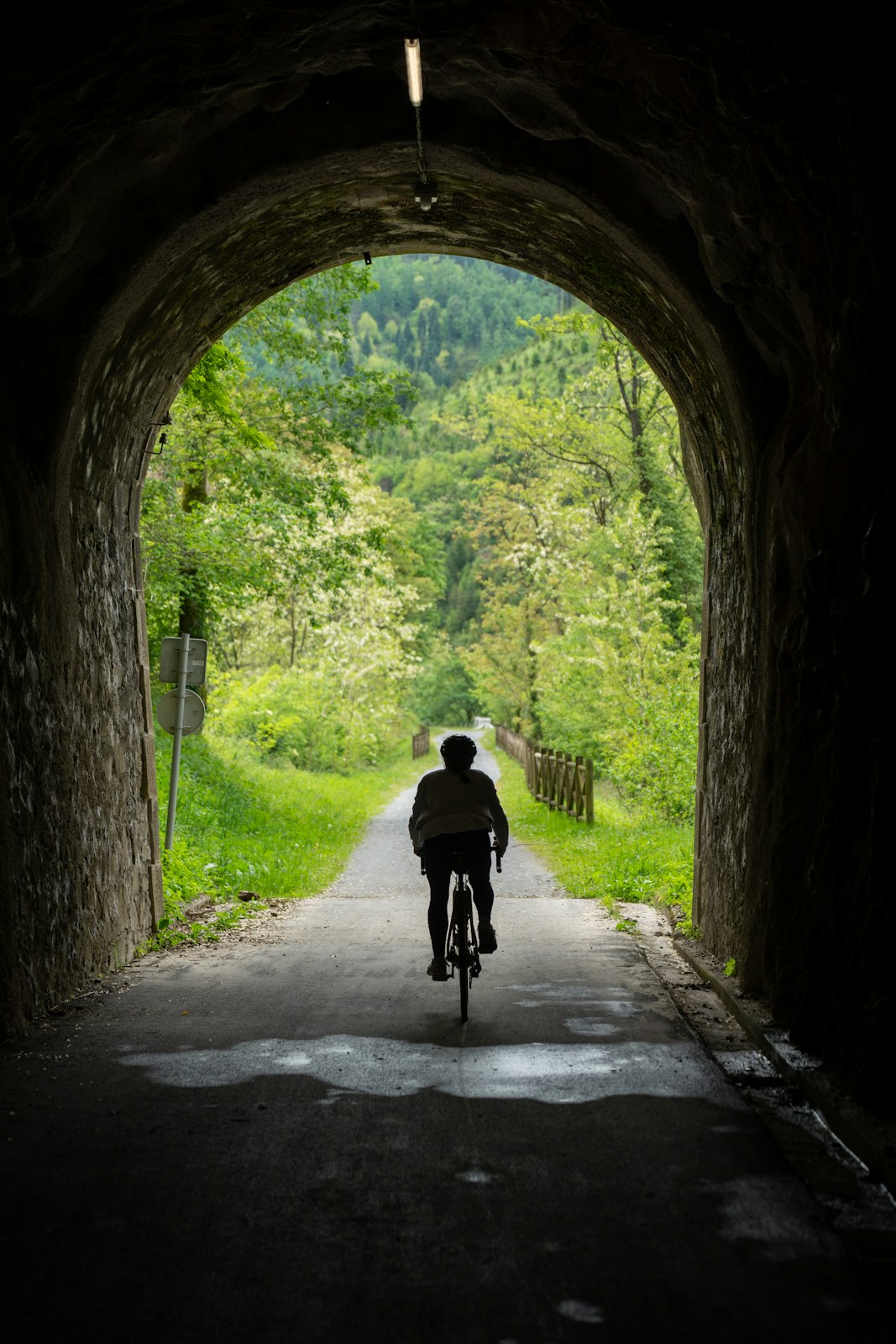
Spain’s Vías Verdes exemplify its cycling culture
Sponsored by

Jul 19, 2024 • 5 min read

Vías Verdes are the quiet hero of Spain's countryside, and there's a far-reaching community of cyclists, walkers and runners who adore them.
Spain’s cities are famously bike-friendly, laden with car-free paths, well-equipped rental centers and leafy, sun-dappled routes. Valencia, for just one example, has an enviable cycling scene, with commuters and visitors peddling throughout the green-minded city.
But beyond the bustling cities, some cyclists seek more secluded paths. Cyclists also dash through pine-scented forests, past fluttering butterflies and into under-explored villages using Vías Verdes (greenways), an extensive network of lush paths made from old train tracks.
Vías Verdes are the quiet hero of Spain's countryside, and there's a far-reaching community of cyclists, walkers and runners who adore them. There are more than 2,000 miles of paths in all – from long, rocky roads pausing at pretty pueblos to sweetly scented trails sandwiched between blossoming orange groves. The decommissioned railway lines have gentle gradients (around 3 percent, max), so everyone can pedal peacefully.
Join the locals on these beloved bike paths: the best way to experience Spain's natural beauty.
Spain's best Vías Verdes


Vía Verde de Ojos Negros, Valencia Community
Valencia is crisscrossed with car-free paths; the most popular is the trail along the 9km Jardines del Turia. Tired of peddling past baobab trees, or had your fill of beachfront bike paths? Vía Verde de Ojos Negros makes for a refreshing day trip. Starting at Barracas, it descends through rugged rock walls carved for the old train, which used to ferry iron ore from the mountains to the port of Sagunto. The track weaves through verdant Valencan farmland and is dotted with sun-dappled picnic benches and thrilling old tunnels. There are many ways to tackle it, but one of the easiest is to take the train north from Valencia to Navajas (around 1½ hours). From Navajas train station, it's just a 6-minute walk to Camping Altomira, where you'll find bike hire, a lovely all-day restaurant and a play area for kids. Bike hire costs around €15 daily (visit hardacho.com for more details). This includes a transfer of either 22km or 42km, leaving only a gently sloped path back to Navajas.
Vía Verde del Carillet Olot-Girona, Catalonia
In the northeast of Catalonia, Vía Verde del Carillet Olot-Girona is the one to beat for stunning scenery, cute villages and dense forests. Begin at Centre Logistic de Bicicletas in Olot (bicicletes.atma.cat, bike hire from €22 per day), a resourceful shop that'll help you plan a pin-sharp itinerary right down to local maps and transfers. This route bids farewell to Olot via a meditative, tree-lined path that follows the river Fluvià. The 54km cycleway plunges into emerald mountains, taking in the dramatic dormant volcanoes of Garrotxa and timewarp towns where balconies are brimming with hot pink petunias. The route runs just behind Sant Feliu de Pallerols; pause here to find the higgledy-piggledy cobbled streets and colorful townhouses overlooking the mossy Brugent River. The Vía Verde finishes in elegant Girona, where ancient streets are laced with Roman and medieval history. It's a shame to turn back straight away, so nibble local charcuterie on the romantic terrace of Café Le Bistrot and sleepover at the utterly charming Pensió Bellmirall before heading back –that's if you can drag yourself away from the pink pinstripe bedding and the idyllic fern-lined courtyard.
Elene Corta rides a bike over the Urola Greenway, one of Spain’s ‘Vias Verdes’ routes. Blake Horn for Lonely Planet
Vía Verde de Dénia, Valencia Community
Back in 1864, this was home to a little steam train that whisked lemons and oranges from the farms to the busy port of Dénia. Now, the only thing chuffing along the track is cyclists, families with buggies and kids wobbling along on their first wheels. Want to join in? The route starts north of the majestic city, found at the foot of Mount Montgó. Find well-maintained bikes at My Denia Rent (mydeniarent.com, from €12 a day, child seats are thrown in for free) and set off inland, past bushy pine trees and rural farmhouses. It's around 6km each way and easy to complete in one morning. Don't miss the old train station, around 3km into the ride, with plaques explaining the history of the building and pictures of the old steam train. The Vía Verde stops just short of El Verger, where there's a picnic bench to scoff sandwiches.
Other favorites
Vía Verde de la Subbetica, in Andalusia, will immerse you in the region's olive oil heritage, picturesque landscapes, and charming white villages.
Vía Verde del Ferro, in Asturias, will lead you through breathtaking mountains, lush forests, and old mining towns.
Vía Verde de la Jara, in Castilla-La Mancha, invites cyclists to explore its rugged terrain, rolling hills, and historic sites.
Vía Verde de la Sierra, in Andalusia, takes you on a route dotted with tunnels, viaducts, and stunning landscapes.
Vía Verde de la Terra Alta, in Catalonia, winds through vineyards, olive groves, and medieval villages, offering a delightful blend of beauty, culture and gastronomy.
Plan your trip

Vías Verdes might be off the beaten track, but information on them is surprisingly easy to find. Begin with Fundación de los Ferrocarriles Españoles. We have this foundation to thank for the vast network; they've established more than 100 Vías Verdes around the country, and they're all documented in detail on their website, viasverdes.com. It's a fountain of knowledge for cyclists in Spain, with maps, information on facilities, and their fascinating history. The accessibility of each Vía Verde will differ: some have train services to the starting point from major cities (the Vía Verde de Ojos Negros can be accessed via train from Valencia, for example), but others might require a car to reach them.
Get in the saddle
Bike hire can usually be found along a Vía Verde, but they can get busy, so it's best to book ahead. Expect to pay around €15 euros a day for a bike, electric bikes slightly more. Some bike hire centers also provide transfers, ferrying riders a few kilometers up the path for an easy one-way cycle back to the starting point (some centers throw it in for free). It's a great solution for day-trippers. Still, folks with more time might consider extending the journey with a stopover in one of the storybook towns along the route – many Vías Verdes are dotted with quaint casas rurales (country houses to rent) and independent B&Bs.

What to pack
Always bring a hat, sun cream and lots of water, especially in the height of summer (July and August) when the midday sun is fiery. If the stars align, there will be a restaurant or two whipping up some fantastic country fare en route, but do check opening times beforehand and book ahead if possible. You can usually judge a good restaurant in the mountains by the number of bikes propped outside the front door. If in doubt, always pack a picnic.
Sponsored by Turespaña
As a travel entertainment and inspirational media outlet, we sometimes incorporate brand sponsors into our efforts. This activity is clearly labeled across our platforms.
This story was crafted collaboratively between Turespaña and Lonely Planet. Both parties provided research and curated content to produce this story. We disclose when information isn’t ours.
With sponsored content, both Lonely Planet and our brand partners have specific responsibilities:
-
Brand partner
Determines the concept, provides briefing, research material, and may provide feedback.
-
Lonely Planet
We provide expertise, firsthand insights, and verify with third-party sources when needed.
Explore related stories




 Art and CultureCopy my trip: An unforgettable family trip to Spain with Elsewhere by Lonely Planet
Art and CultureCopy my trip: An unforgettable family trip to Spain with Elsewhere by Lonely PlanetNov 19, 2024 • 4 min read



 Budget TravelEverything you need to know about visiting Barcelona on a budget
Budget TravelEverything you need to know about visiting Barcelona on a budgetOct 23, 2024 • 6 min read
















